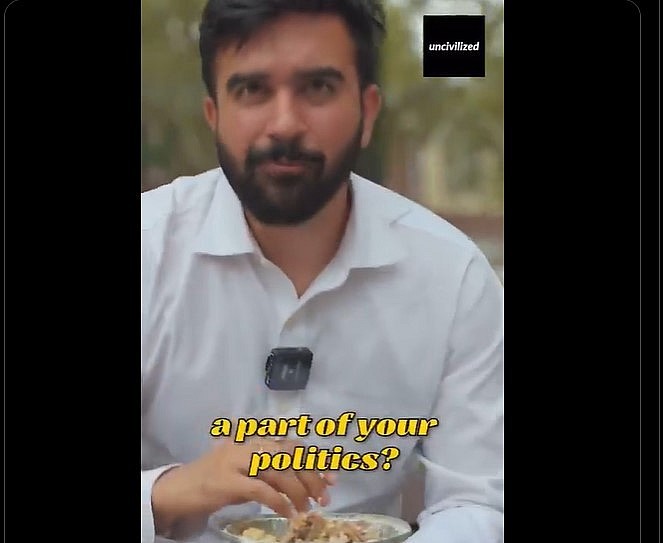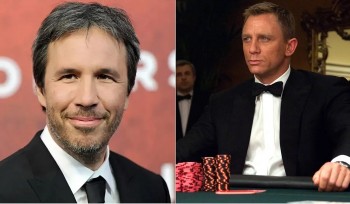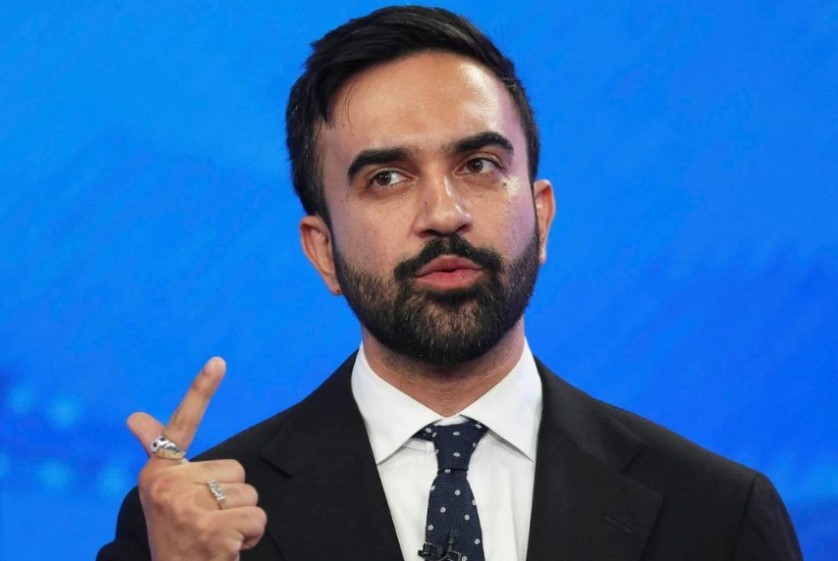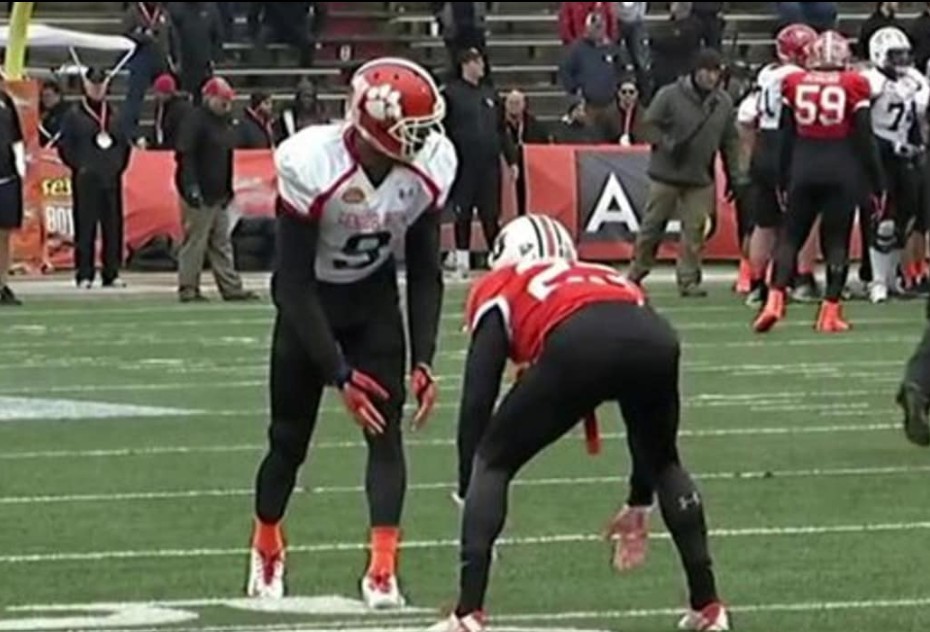Zohran Mamdani Faces Backlash Over Eating Rice by Hand in Viral Throwback Video
In a political climate increasingly shaped by identity and online outrage, New York mayoral hopeful Zohran Mamdani has become the latest flashpoint. A throwback campaign video showing him eating rice with his hand while discussing global politics went viral—setting off a torrent of Islamophobic and xenophobic backlash, calls for his deportation, and a full-blown digital culture war.
The video, originally meant to highlight his international perspective on issues like Palestine, was reframed by critics as evidence of his "foreignness," "anti-American" values, and even questioned his right to run for office. The controversy has pulled the spotlight toward uncomfortable truths about race, culture, and representation in American public life.
Read More: Who Is Rama Duwaji? Meet Zohran Mamdani’s Wife and the Syrian Artist Redefining NYC Politics
 |
| Zohran Mamdani was trolled for eating rice with his hand |
Who Is Zohran Mamdani?
Zohran Mamdani is no fringe figure. A Democratic Socialist and the son of acclaimed Indian-American filmmaker Mira Nair, Mamdani gained national attention after his surprise victory in the New York State Assembly. Known for advocating tenant rights, climate action, and solidarity with global liberation movements, he represents a bold new voice in American politics—and a direct challenge to traditional power structures.
His campaign has always leaned into authenticity, drawing from his South Asian and Muslim heritage to inform a political identity rooted in anti-imperialism and social equity. But now, that authenticity is being weaponized against him.
The Video That Sparked It All
In the viral clip, Mamdani is seen eating rice with his hand—a standard practice across much of South Asia—while discussing how growing up in the so-called "Third World" shaped his views on Palestine. The caption on the video read:
"Zohran says his worldview is inspired by the 3rd world while eating rice with his hands."
Rather than focus on the content of his political commentary, critics zeroed in on the act of hand-eating. Comments ranged from disgust to full-on racist diatribes:
"How can you live in the USA most of your life and not learn to eat rice with a fork? I’m sick."
"He should be deported. He’s against our Constitution on multiple levels."
"Foreigner with a deep 'understanding' of the third world's perspectives, wants to run our largest city. To whose benefit, I wonder?"
What began as a moment of cultural pride was quickly reframed as a political liability.
Islamophobia and Xenophobia Take Center Stage
This wasn't just about rice. The underlying reaction to Mamdani's video was soaked in racialized anxiety and Islamophobia. Multiple users called for his deportation, accused him of hating America, or questioned his loyalty to the Constitution—despite him being a U.S. citizen born and raised in New York.
Others took it further, suggesting that his cultural behavior was performative:
"Notably, he’s not even doing it right. That isn’t how you eat rice with your hands. This is entirely a constructed persona to make white liberals feel special and in the know."
This comment speaks volumes about the double bind people of color face: criticized both for expressing culture authentically and for allegedly performing it for political gain.
The Double Standard of Cultural Expression
Many pointed out the blatant hypocrisy in the backlash. In a multicultural society like America, using chopsticks or eating tacos by hand is often celebrated or exoticized. Yet for Mamdani, eating rice by hand triggered accusations of being uncivilized.
Why the double standard?
It boils down to who gets to be seen as "authentically American." When white politicians adopt international cuisine, it's diversity. When a brown politician embraces his heritage, it's threatening.
Cultural Identity as Political Ammunition
The real story isn’t the rice. It's how quickly something as mundane as eating customs can be spun into an existential threat when applied to someone with a Muslim name and a non-white face.
Mamdani’s critics didn't just disagree with his policies—they questioned his very right to participate in American democracy. This incident reflects how cultural identity becomes weaponized in political discourse, especially when the subject refuses to assimilate quietly.
Defenders Push Back
Fortunately, the backlash wasn't universal. Supporters quickly rallied to Mamdani’s defense, highlighting the long-standing tradition of eating by hand in many cultures and calling out the racism embedded in the critiques.
“This is the standard way people in South Asia eat and there is nothing wrong with it.”
Others called attention to the selective outrage:
“So when a white chef does it, it’s authentic. When a South Asian politician does it, it’s nasty?”
This duality of responses reveals a fractured public, with one side seeking cultural acceptance and the other clinging to outdated, exclusionary notions of Americanness.
A Bigger Conversation About Representation
Mamdani's experience underscores why representation matters—not just in terms of race or religion, but also cultural fluency. As a nation of immigrants, the U.S. cannot afford to treat cultural difference as a threat.
When public figures from minority backgrounds express themselves authentically, they help expand the boundaries of what's considered American. That’s not a weakness; it’s a strength.
Conclusion: More Than a Meal
The uproar over Zohran Mamdani eating rice with his hand isn’t about etiquette—it’s about identity, power, and who gets to shape the national narrative.
His critics aren’t just uncomfortable with his eating habits; they’re uncomfortable with what he represents: a shifting America where different cultures coexist, and where progressive politics aren’t tethered to whitewashed norms.
In trying to shame him, they’ve only spotlighted their own fear of change.
And Mamdani? He just kept eating.
 Who Is Denis Villeneuve? Meet the Visionary Director Behind the Next James Bond Film Who Is Denis Villeneuve? Meet the Visionary Director Behind the Next James Bond Film The Visionary Director Behind the Next James Bond Film: Denis Villeneuve |
 Who Is Anna Wintour - And Why She's Stepping Down as Editor-in-Chief of Vogue Who Is Anna Wintour - And Why She's Stepping Down as Editor-in-Chief of Vogue Anna Wintour is synonymous with fashion power. As the long-reigning Editor-in-Chief of Vogue, her influence shaped not only a magazine but the fashion industry itself. |
 Who Is David John Hairston, the Suspect Arrested in the Santa Monica Place Police Officer Shooting? Who Is David John Hairston, the Suspect Arrested in the Santa Monica Place Police Officer Shooting? This article examines who Hairston is, the sequence of events, the injuries and arrest, charges he faces, and what lies ahead for both the investigation ... |
 Who Is Kim Ju‑ae? – Daughter of North Korean Leader Kim Jong Who Is Kim Ju‑ae? – Daughter of North Korean Leader Kim Jong Since 2022, Kim Ju-ae, daughter of North Korean leader Kim Jong Un, has gained attention for her increasing role in major national and international appearances. |























